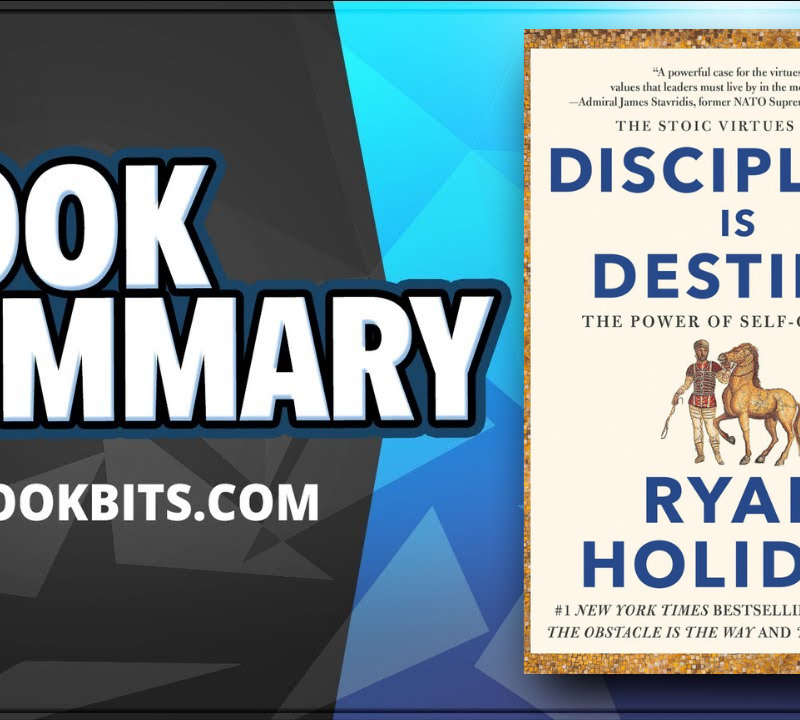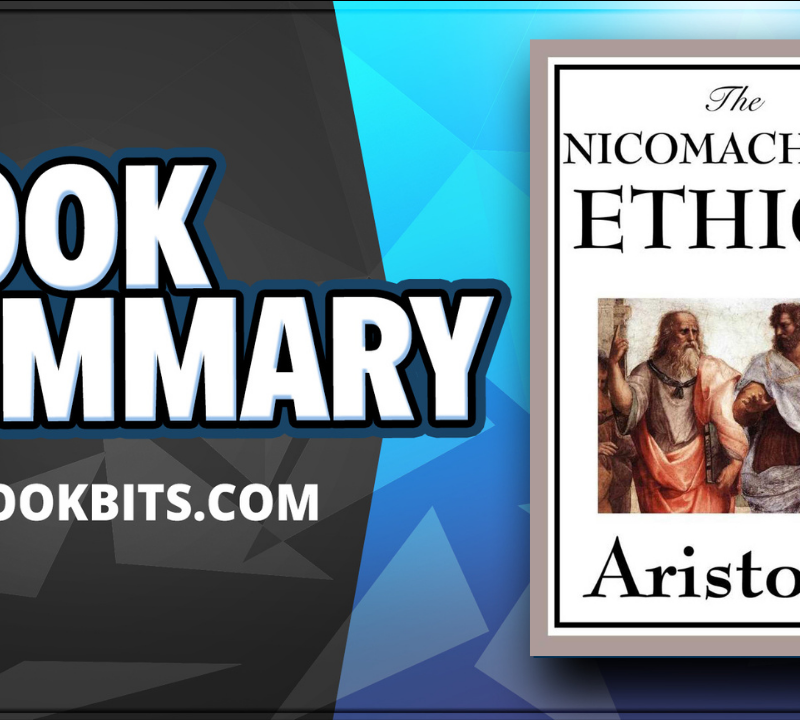★DOWNLOAD THIS FREE PDF SUMMARY HERE
? MY FREE BOOK TO LIVING YOUR DREAM LIFE”
? SPONSOR BESTBOOKBITS BY USING PATREON
? SUPPORT BESTBOOKBITS BY CLICKING THE LINKS BELOW
- 150 PDF Summaries
- Coaching Program
- Subscribe to My Channel
- Website
- Spotify
- Book Club
- Mailing List
- A friend is a second self, so that our consciousness of a friend’s existence…makes us more fully conscious of our own existence.
- A man investigating principles cannot argue with one who denies their existence.
- All art, all education, can be merely a supplement to nature.
- All human actions have one or more of these seven causes: chance, nature, compulsion, habit, reason, passion, and desire.
- All men by nature desire knowledge.
- All paid jobs absorb and degrade the mind.
- And, generally speaking, all things are good which men deliberately choose to do.
- Aristotle insists that habituation, not teaching, is the route to moral virtue. We must practise doing good actions, not just read about virtue.
- As for the life of money-making, it is one of constraint, and wealth manifestly is not the good we are seeking, because it is for use, that is, for the sake of something further:
- Choice, not chance, determines your destiny.
- Courage is the first of human qualities because it is the quality which guarantees the others.
- Courage is the mother of all virtues because without it, you cannot consistently perform the others.
- Criticism is something you can easily avoid — by saying nothing, doing nothing, and being nothing.
- Distance does not break off the friendship absolutely, but only the activity of it.
- Educating the head without educating the heart is no education at all.
- Education is the best provision for old age.
- Excellence is an art won by Training and Habit. We do not act rightly because we have Virtue and excellence, but rather, we have virtue and excellence because we act rightly.
- Excellence is never an accident. It is always the result of high intention, sincere effort, and intelligent execution; it represents the wise choice of many alternatives – choice, not chance, determines your destiny.
- Excellence is not an act, but a habit.
- Fear is pain arising from the anticipation of evil.
- For the activity of the mind is life.
- For the things we have to learn before we can do them, we learn by doing them.
- For though the wish for friendship comes quickly, friendship does not.
- For we are noble in only one way, but bad in all sorts of ways.
- Good character is the indispensable condition and chief determinant of happiness, itself the goal of all human doing.
- Good habits formed at youth make all the difference.
- Habits of virtue and vice are caused by acts.
- Happiness belongs to the self-sufficient.
- Happiness depends upon ourselves.
- Happiness is a quality of the soul…not a function of one’s material circumstances.
- Happiness is a state of activity.
- Happiness is activity of soul.
- Happiness is the exercise of talent, along the lines of excellence.
- Happiness is the meaning and the purpose of life, the whole aim and end of human existence.
- Happiness seems to depend on leisure, because we work to have leisure, and wage war to live in peace.
- Happiness then, is found to be something perfect and self-sufficient, being the end to which our actions are directed.
- Happiness, therefore, being found to be something final; and self-sufficient, is the end at which all actions aim.
- He is happy who lives in accordance with complete virtue and is sufficiently equipped with external goods, not for some chance period but throughout a complete life.
- He who has many friends has no friends.
- He who has overcome his fears will truly be free.
- Hope is the dream of a waking man.
- How can a man know what is good or best for him, and yet chronically fail to act upon his knowledge?
- I count him braver who overcomes his desires than him who conquers his enemies; for the hardest victor is over self.
- I say that habit’s but a long practice, friend, and this becomes men’s nature in the end.
- If there are several virtues the best and most complete or perfect of them will be the happiest one. An excellent human will be a person good at living life, living well and ‘beautifully’.
- If you would understand anything, observe its beginning and its development.
- In all things of nature there is something of the marvellous.
- It is during our darkest moments that we must focus to see the light.
- It is likely that unlikely things should happen.
- It is not enough to win a war; it is more important to organize the peace.
- It is of the nature of desire not to be satisfied, and most men live only for the gratification of it.
- It is the mark of an educated mind to entertain a thought without accepting it.
- Knowing yourself is the beginning of all wisdom.
- Learning is an ornament in prosperity, a refuge in adversity, and a provision in old age.
- Learning is not child’s play; we cannot learn without pain.
- Love is composed of a single soul inhabiting two bodies.
- Man is a goal-seeking animal. His life only has meaning if he is reaching out and striving for his goals.
- Man is his desire.
- Man’s work as Man is accomplished by virtue of Practical Wisdom and Moral Virtue, the latter giving the right aim and direction, the former the right means to its attainment.
- Misfortune shows those who are not really friends.
- Moderation in all things.
- My best friend is the man who in wishing me well wishes it for my sake.
- Nature does nothing in vain.
- One swallow does not make a summer, neither does one fine day; similarly one day or brief time of happiness does not make a person entirely happy.
- Patience is bitter, but its fruit is sweet.
- Pleasure causes us to do base actions and pain causes us to abstain from doing noble actions.
- Pleasure in the job puts perfection in the work.
- Quality is not an act, it’s a habit.
- Some men are just as sure of the truth of their opinions as are others of what they know.
- The actions from which [virtue] was produced are also those in which it is exercised.
- The aim of art is to represent not the outward appearance of things, but their inward significance.
- The antidote for fifty enemies is one friend.
- The cultivation of the intellect is man’s highest good and purest happiness.
- The educated differ from the uneducated as much as the living differ from the dead.
- The end toward which all human acts are directed is happiness.
- The energy of the mind is the essence of life.
- The first principle of all action is leisure.
- The greatest virtues are those which are most useful to other persons.
- The happy life is thought to be one of excellence; now an excellent life requires exertion, and does not consist in amusement.
- The high-minded man must care more for the truth than for what people think.
- The man who does not enjoy doing noble actions is not a good man at all.
- The more you know, the more you know that you don’t know.
- The quality of life is determined by its activities.
- The roots of education are bitter, but the fruit is sweet.
- The saddest of all tragedies – the wasted life
- The secret to humour is surprise.
- The soul never thinks without a mental picture.
- The student of politics must study the soul.
- The weak are always anxious for justice and equality. The strong pay no heed to either.
- The whole is more than the sum of its parts.
- There is no great genius without a mixture of madness.
- There is one end we all have – not in virtue of being rational, but simply in virtue of being human being – and that is happiness.
- There is only one way to avoid criticism: do nothing, say nothing & be nothing.
- They who love in excess also hate in excess.
- Those that know, do. Those that understand, teach.
- Through discipline comes freedom.
- Time crumbles things; everything grows old under the power of Time and is forgotten through the lapse of Time.
- To get angry is easy, to get angry with the right person, the right moment and for the right reason is difficult.
- To lead an orchestra, you must turn your back on the crowd.
- To write well, express yourself like the common people, but think like a wise man.
- Virtue lies in moderation.
- We acquire a particular quality by acting in a particular way.
- Pleasure in the job puts perfection in the work.
- We are what we repeatedly do. Success is not an action but a habit.
- We become brave by doing brave acts.
- We become just by the practice of just actions, self-controlled by exercising self-control, and courageous by performing acts of courage.
- We can’t learn without pain.
- We give up leisure in order that we may have leisure, just as we go to war in order that we may have peace.
- We learn an art or craft by doing the things that we shall have to do when we have learnt it.
- We should behave to our friends as we would wish our friends behave to us.
- What a society honours will be cultivated.
- What it lies in our power to do, it lies in our power not to do.
- When people are friends, they have no need of justice, but when they are just, they do need friendship in addition; and in the realm of the just things, the most just seems to be what involves friendship.
- Where the needs of the world and your talents cross, there lies your vocation.
- Whosoever is delighted in solitude is either a wild beast or a god.
- Wise men speak when they have something to say, fools speak because they have to say something.
- Wishing to be friends is quick work, but making friendship is a slow ripening fruit.
- Without friends no one would choose to live, though he had all other goods.
- You will never do anything in this world without courage. It is the greatest quality of the mind next to honour.













